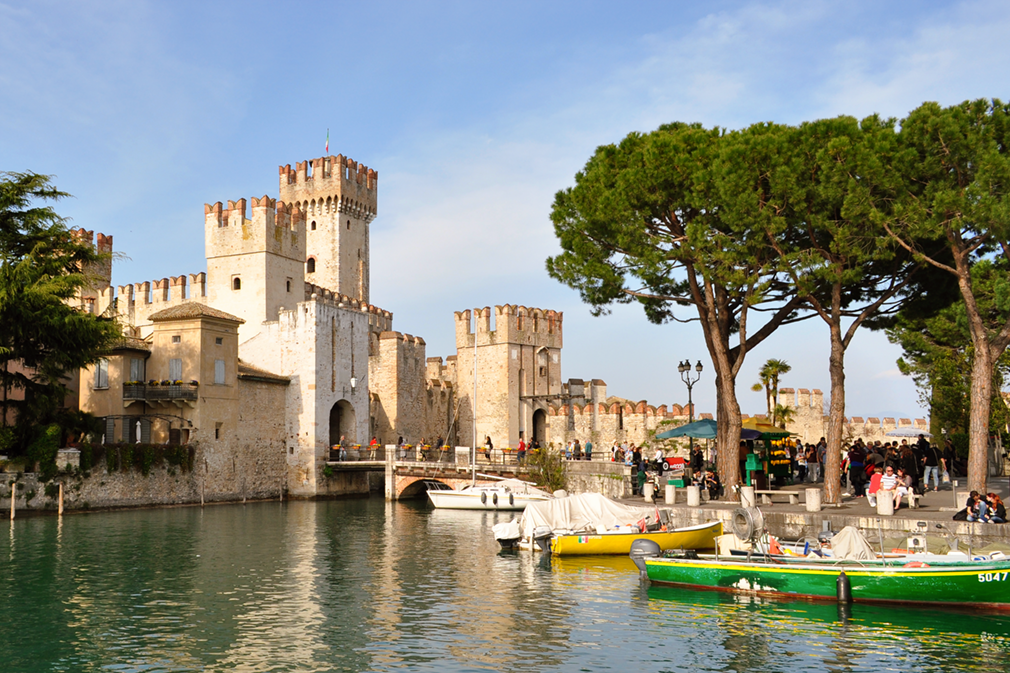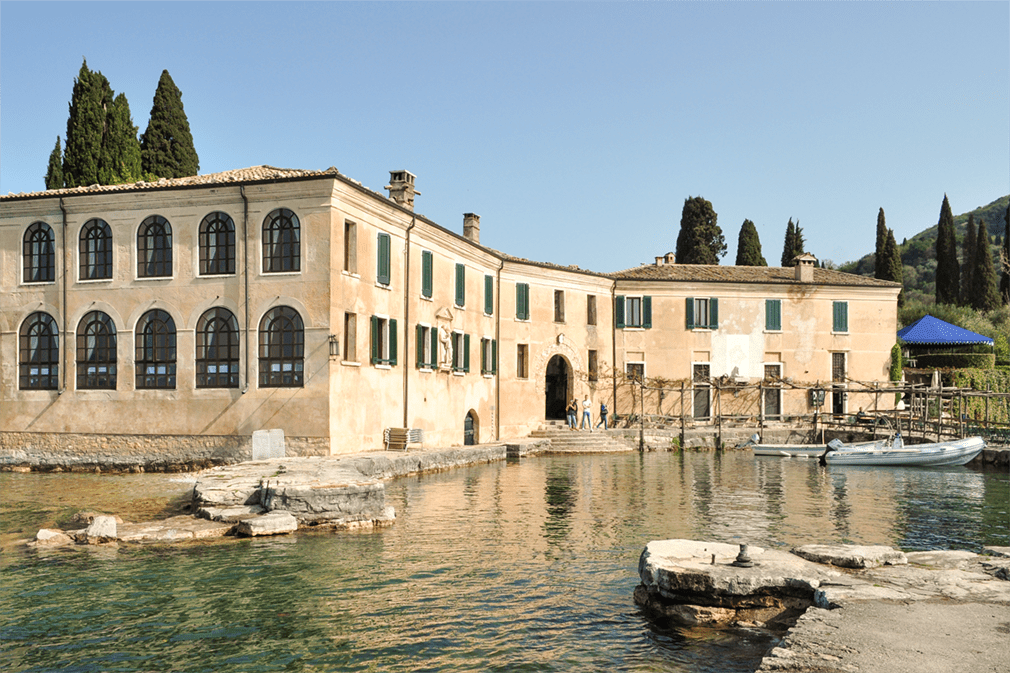Without knowing, without ever really having been conscious of it, I staked my entire existence on the tracks of the north-south axis, a line borne out of centuries of incessant toil which saw the mighty Alps finally conquered by spike and steel. I realize it now each time stepping into the wagon of a EuroCity in Zurich. To ride the train to Italy is to go back in time and unravel the stitches I had previously sewn shut, whether triumphantly or unwillingly.
With each hour that passes and each threshold we cross, I de-age. Old memories rouse from their slumbers and saunter down the shallow recesses of my mind. As we round out of the tunnel and curve into the valley of Zug, the cherry trees I used to love admiring bring up a softness in my throat. Their white blossoms and delicate dance remind me that there are some things years and distance can erode but will never erase. Here, a boy once promised to show me his home in Schwarzbubenland, where the jam-sweet cherries would put those proud Zugers and their overrated Kirschtorte to shame, he said. He never kept his promise, and as insignificant as it may be, I’ve never forgotten about it. As we pass the pristine, dreamlike villages of Oberwil and Walchwil along the riviera, I peer out at the relics of my former lives—the ones I shared with people who used to be my sun and moon before they fell out of orbit and disappeared, without leaving a trace of having ever existed apart from within the songs I wrote about them. There was Tellenörtli, the small, grassy beach where we blew up an inflatable dinghy that one late summer day in 2015. And over there, on the main village street leading up to the church and town hall, was my old apartment with its impossible-to-miss cerise walls and glass skywalk where I used to stretch after jogging. Yes, I knew every bend and border here. A sloping sea of grass speckled with bright dandelion patches signaled that we had left Zug and its villages behind and were now in Schwyz. Onwards to the heart of Switzerland and through the long vein of the Gotthard Tunnel we go.
On the other side of the mountains, the sheep have already been sheared for spring. We were welcomed by an intermission between April showers. The towers of Bellinzona shouldered a gray mass of gloom while in Lugano the clouds hung so low you could pluck them right from the air. But everything remained as I left it; it was all there: San Salvatore, Monte Brè, Monte Boglia, and my wide-eyed nineteen-year-old self with his insecurities and newfound anonymity. Further south, town signs jutted into view like dog-ears in a book that I had begun reading but never finished, highlighted by names of people who have come in and out of my life through some happenstance: Balerna, here is where Kalli lives—I should come down to visit once; Como, here’s where Leah lived and said she wouldn’t come back to—we never did find George Clooney’s house but I sure liked it here; Monza, where the Italian Grand Prix and Giulia are—I wonder if she still remembers me; Milan, Xenia—I should see her more, no excuses there; Crema, Jessica, and that one time we went clubbing in a discotheque in Bergamo and ended up being locked out of our shuttle by a furiously horny couple. I felt a remorseful dread that I may never have the chance or the determination to return to these bookmarked cities on the way to Lake Garda.

At the railway station of Peschiera del Garda, we hauled ourselves out of the train and into a bus. As we pulled up the lake’s eastern fringe, it was the medieval walls of Lazise which drew my attention first. I remember the town in particular because within its enclosure I could catch a glimpse of muted clay-red and orange buildings, ones I was quite certain I may never see more of—another dog-ear in my book of Italian towns. What is it about things I may never see again that leaves me short of breath? What is it about the fear of missing out that makes my heart rage against my ribs? Is it because that as we get older, we become more aware of our limitations in a limitless universe, of what we can and cannot do, of all we can and cannot cross off our list before we return to the terra whence we came? The bus rolled into the autostazione of Garda to let us off before diving back into the congested stream of Friday traffic. But we had rolled in twenty minutes too late and had missed our connection. “Ci scusiamo per il ritardo, eh?” I joked to Sébastien. We apologize for the delay. It’s quite an affable slogan once you get used to it. We resolved to walk to San Vigilio, our retreat located on a tongue of land north of Garda center.
The stillness of the water matched the cloudless firmament in this navel of Italy saddled between Lombardy and Veneto. The air was cool and not at all muggy like the humid, cicada-filled summer weekends I spent sweating through my shorts in Treviso and Padua visiting Francesco, the first friend I made in Europe, he who immediately saw beyond the slits of my eyes and surname and accepted me as an American just like any Smith or Johnson who never needed to defend his identity in the Land of the Free. No, here the air was uncharged and balmy—a promontory of peace, shelter, and sanctuary—just like it had been for centuries. The only tremors were from my own fragmented, forlorn face staring back at me from the water’s edge.

We let down our rucksacks and unfurled in the serenity, but beneath my sunglasses and the surface of my skin I struggled to enjoy my basking. I glanced towards Séb, at this man with whom I have built a new universe together. I refrain from calling him my sun now because my happiness is supposed to depend on no one else but myself or so people keep telling me whether I want to hear them or not. Perhaps the Jupiter to my Ganymede, then. As he looked at the lake and felt what I hoped was more beauty, relaxation, and admiration than I could cogitate in that moment, I mulled over our love and the unlikelihood of how it all came to be: that a man from the pale of Calais and another from the concrete blocks of a Pekinese petroleum-refining community could ever have crossed paths. “What would you do here without me?” he asked, breaking the silence and curiously teasing me with a tinge of overconfidence which I found simultaneously sexy and vexing. “I probably wouldn’t have come here without you” was my reply. And it was true. Lake Garda is for lovers, not the lonely.
A dead end soon met us. The pebbled trail had relinquished to the tide and the shoreline was now replaced by an insurmountable wall. We had arrived at our destination, just not at the entrance. Retracing our steps to a forested corridor we passed a few hundred paces back, we followed the shaded route up to the motorway. After a quarter of an hour and numerous occasions of nearly being grazed by cars and camions, a small secondary road opened onto a cypress-lined alley, which bifurcated further into two tinier streets, one of which took us at last down to the Locanda San Vigilio—the inn of Saint Vigilius of Trent.

That night, we ate at the restaurant by the marina, toasting flutes of slightly sparkling Lambrusco over seared Mediterranean scallops and Amarone risotto. All the red wine must have soaked well into my bloodstream because for a brief moment I could forget about the things that have been making me perpetually restless and fatigued lately. Forget about my disastrous motor skills and four failed driving exams in two countries. Forget about impressing colleagues with ideas I didn’t have. Forget about tax season and growing older and partying less. Forget about the Instagram-famous hunk at the gym who always hogs the same chest press machine for a quarter of an hour at a time but who I’ll never approach because I’m afraid he’ll see through my annoyance and straight to the attraction I try to repress every time I see him. Forget about self-actualization, what the world expected of me, and what I expected of myself. Amarone risotto and sparkling Lambrusco, could these be the Italians’ secret to the art of not-giving-a-damn? Suddenly, the skies lit up with crackles and booms; they were setting off fireworks in the neighboring village of Bardolino. I wondered what they were celebrating. “Alors, on trinque ?” asked Séb, raising his glass. Oui, santé !
The next morning started late. I relish the increasingly rare days when I could wake up naturally, those days dictated by will, not by necessity. I made myself decent and headed down to the taverna at the old port. This morning, I had no necessity for caffeine. I ordered something unfamiliar: einen Gerstenkaffee bitte. On Lake Garda, German was the lingua franca, not English. As for the Gerstenkaffee—or orzo as the Italians call it—I immediately took to it, from the smoky smell of roasted barley down to the crisp, bitter not-quite-coffee-yet-not-quite-tea taste. I wouldn’t mind waking up to a cup of orzo every morning. What to do with the remaining hours of the day? Verona and Juliet’s balcony? The weather was good. We decided to put off our decision and opted to simply walk first: through the lane of cypresses, along the perilous motorway, by the placid strand, and into town. Upon reaching the harbor, we learned that a boat was bound to leave for Sirmione in two minutes. Before we knew it, we were gliding above the water. Romeo would have to wait.
The moat, drawbridge, and swallow-tailed merlons of Sirmione’s Ghibelline towers seemed half fairy-tale, half amusement park. I wasn’t sure which part of it was real and which part was my imagination escaping to some faraway childhood fantasy, where life’s biggest worry was swallowing gargantuan goblets of gelato before they melted and dripped their sticky nectar over your hands and fingers. That’s the innocence of Italian gelato: you’ll never find it completely, perfectly frozen.

It is said that spring never ends by the shores of Lake Garda, and I could believe it. I was ready to shut my eyes and be baptized in the air of new beginnings, to reemerge as a man radiating with optimism and the blind faith of a better tomorrow. But instead of the voice of God, I heard my mother’s, lovingly chiding me that I had become too much of a flit recently: too undisciplined and spoiled to distinguish suffering from sacrifice, and too distracted by what I didn’t have to realize how good I actually had it. I knew she was right, and that no lake, no train ride, no amount of gelato in the world could have alleviated my anxiousness because it was not the world I had a bone to pick with, but me. I could feel the winds of a soliloquy picking up speed, but I was sick of this infernal introspection and couldn’t bear to listen to myself any longer. “Séb, do you think I’m complicated?”
“Stop asking stupid questions and let’s eat something. Pizza? I can have carbs and not feel guilty, right?” I love the way he illuminates me. “I’ll have a pizza, and you can get your lemon thing.” He meant a scaloppine al limone, which did sound good. Maybe I’ll order a small pitcher of Lambrusco too.
